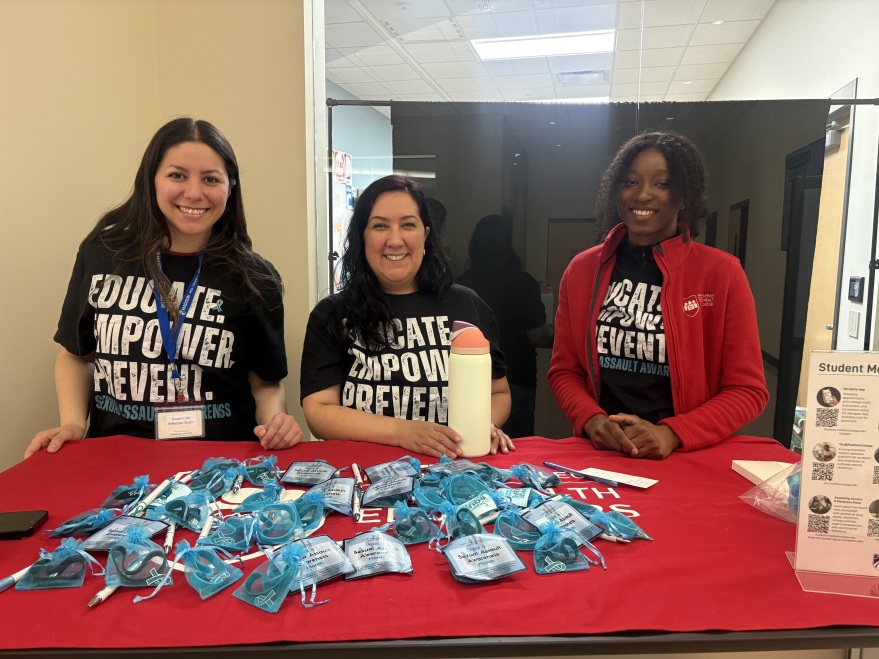Completing the Census is important for many reasons
March 25, 2020
As another 10 years have gone by, the time has come for the Madison Community along with the rest of the country, to complete the 2020 United States Census. America has been submitting the census since 1790 making this the 24th census to date. Mandated by the Constitution, American citizens (and non-citizens) are encouraged to complete it.
Census day, April 1, 2020, is just around the corner. Each residence in the country will receive information in the mail notifying them it’s now time to fill out the census. Individuals can fill this short questionnaire out either online, by phone, paper or in person.
Since filling out the census is new to most of Madison College students, there are some tips that may assist them on the task.
Brian Grady, the Principal Planner from the City of Madison Planning Division explains the importance that the form is filled out based on where an individual is living or will be living on April 1, the census reference date. This creates a more accurate count and lessens the odds of under counting or double counting pupils.
If a student is on spring break and are away from the general Madison area during that date, they should still count themselves based on where they have been living most of the year.
“It’s important that everyone living in a household gets counted on a form. If you are living in an apartment or a house, whether you have 2 people, 3, 4, 5, everyone needs to be counted on the form,” Grady said. This is regardless of relation.
Participation in the census is needed to create data that directs many aspects in the country. It calculates population in every state so the country can have equal representation within each level of government. Therefore, it is used to direct the number of house of representatives each state holds.
“Equal population, equal voting. Each person, one vote,” said Grady.
It also affects our state’s federal funding.
“Approximately, $675 billion in federal funding is distributing every year,” said Grady, “Those numbers are good for 10 years. So, each person that is not counted on the form puts about $2,000 of loss in federal funding per person, per year.”
Not only that, the census count brings in data that is used in certain decisions focusing on community transportation, housing affordability, educational and non-profit programs, as well as other city, state and government related work.
According to Grady, 10 years ago, Madison had one of the highest response rates in the country to the census, though our state still sees a trend of unequal response rates within all backgrounds and demographics. This leaves groups such as African Americans, Latinx communities, infants up to 5 years of age, renters (such as college students) and people who relocate often as undercounted populations.
“Our population and demographics have been changing over time and so we need to make sure that we’re adjusting these subgroups that have been undercounted,” said Grady.
There have been some past concerns about the census questionnaire that have led some groups to be undercounted, such as the distrust citizens have on the government and on society. Other concerns have been confusion on what the information gathered from the census is used for.
Grady said the data collected from the census is all confidential. It cannot be shared to other agencies or departments and it cannot be used in any way to harm an individual.
In order to promote these groups that need representation, the City of Madison founded the Complete Count Committee in 2019, with the chair being State Representative Sheila Stubbs. The committee is filled with a mix of demographics and backgrounds that have been networking throughout the community for the past nine months to ensure results for the year of 2020.
With the help of committee, community, and city staff members, awareness and encouragement to fill out the census has been shared via social media, local radio, as well as by hosting neighborhood events and promotional activities. According to Grady, $150,000 was provided by the City of Madison for this year’s overall census initiative.
He also mentions that there are many census jobs available around the Madison area. There are part-time and full-time positions offering flexible hours, paid training and a $20 per hour pay rate. Madison College students are encouraged to join. If an individual is interested in helping the community while earning income, they can go online to the Census Bureau website https://2020census.gov/en/jobs.html to apply.
“This is an important thing, an important civic duty, just like voting, to fill out this form and have that political representation at different levels of government and to help bring to the Madison community our fair of federal funding,” Grady said.































